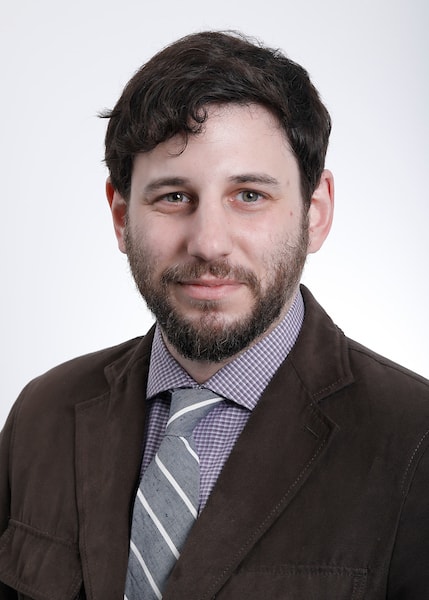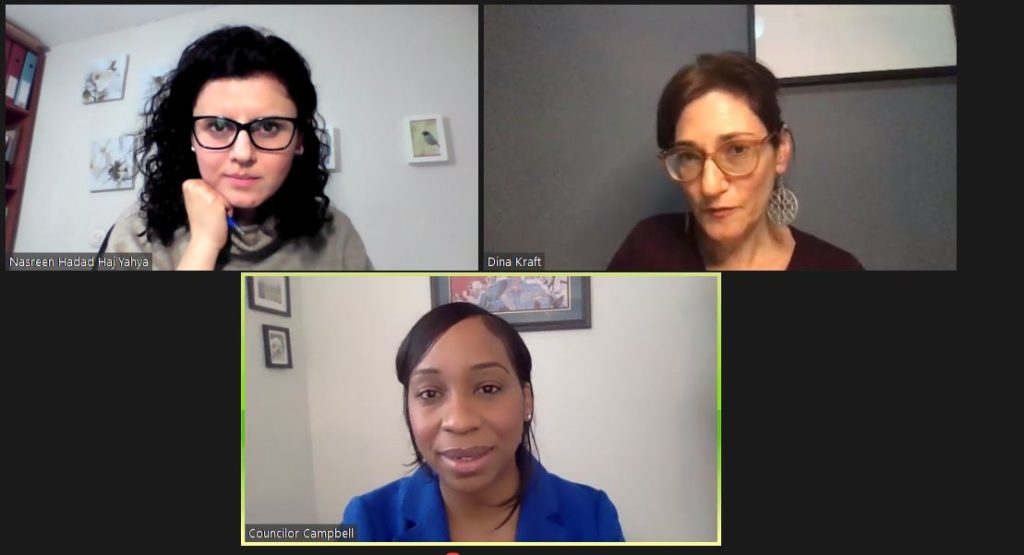
Director of Israel Engagement
Eli Cohn-Postell:
I always enjoyed school growing up, but science was never one of my strong subjects. I never had a handle on how science actually worked. When doing experiments in school, for example, I always had the impression that I was supposed to come up with a pre-determined answer rather than to test a new idea. I knew that a hypothesis was an informed guess about what might happen, but I could never find creativity in the scientific method. Only later did I realize that forming and testing a hypothesis are the fundamental steps to creation and innovation, with opportunities to experiment all around us.
We have been testing a simple hypothesis in recent weeks: that shared problems, even complex issues facing communities separated by thousands of miles, benefit from collaborative solutions. The initial results are positive. Over the past month, we have held two programs that brought together civic leaders in Boston, Israel, and San Francisco to discuss equity during the pandemic. It turns out we have a lot to learn from each other. Even through different circumstances, we face similar questions such as how to address education gaps during remote learning, how to overcome mistrust regarding vaccine distribution, and how to advance equitable solutions to address disparities in our communities
Before we could start this experiment we needed to find people who could address these issues directly. We first turned to City Councilors Andrea Campbell and Justin Hurst of Boston and Springfield, respectively. In addition to having traveled to Israel on our Study Tours, Councilors Campbell and Hurst are longstanding partners of ours, with years of experience building more equitable communities both inside and outside of politics. We partnered with our friends at the Interagency Task Force on Israeli Arab issues—a key resource for many of our Boston Partners for Peace organizations—and the San Francisco JCRC to identify the right leaders to engage in solution-centered conversations.
Our first program featured Councilor Campbell alongside Dr. Nasreen Hadad Haj’Yahya, Director of the Arab-Jewish Relations Program at the Israel Democracy Institute, discussing the impact of the pandemic on existing equity gaps in education. (You can watch the recording here). Councilor Campbell and Dr. Hadad Haj’Yahya talked about their experiences as female members of minority communities, sharing personal examples of how access to education and other resources shaped their own families and impacted their professional journeys. Then, earlier this week, we spoke to Councilor Hurst alongside Haifa District Commissioner Fayez Hanna and San Francisco Supervisor Myrna Melgar (recording here). Together, they discussed how COVID has exacerbated equity gaps in their communities but has also created new opportunities for trust-building between the government and minority populations.
The pandemic has provided us with both obstacles and opportunities to deepen our personal connections and advance our work. Before the pandemic, we might have held these meetings face to face, bringing leadership from Boston to Israel and vice versa. Instead, we are now embracing new opportunities to hold these critical conversations not only across the country and around the world, but with technology that enables hundreds of other people to participate and benefit as well.
Towards the end of our first session, someone asked if we really can learn from each other or if the contexts in Boston and Israel are simply too different for shared solutions. I appreciated Councilor Campbell’s response: despite the starkly different landscapes, she affirmed the value of learning best practices from one another and being in partnership across different settings. Her words rang true, reinforcing the importance of bringing our partners together for these conversations and shared learnings that help to build a more equitable world.
Another thing about science that I used to misunderstand is that you never prove a hypothesis. An experiment can give you evidence to either confirm or refute your guesses, but you never have proof. This month, we didn’t prove that political thinkers in Boston, Israel, and San Francisco can come together to solve the great problems of our day. Yet we did create something: the seed of a new community, dedicated to collaboration and with the potential for further growth and partnership.
If you would like to learn more about our upcoming programing, please click here.
Shabbat Shalom,
Eli
Eli Cohn-PostellDirector of Israel Engagement


